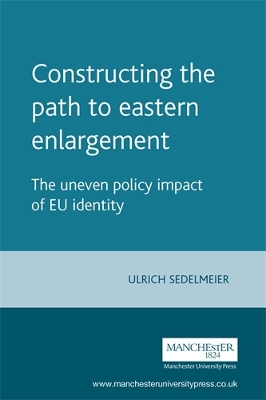This book examines the two main dimensions of the European Union's enlargement to eight central and eastern European countries (CEECs) in 2004. Why did the EU agree to enlargement, despite the costs for some incumbents who have veto-power? How can we explain the (uneven) pattern of accommodation of the CEECs' preferences in concrete policies?
Combining in-depth empirical analysis with an original theoretical framework, which draws on insights from constructivism and historical institutionalism, this book focuses on the EU's discursively constructed role-identity vis-a-vis the CEECs. This role-identity forged a group of policy advocates inside the European Commission, who promoted the CEECs' preferences inside the EU, and induced a path-dependence into the enlargement process.
The impact of EU identity on concrete policies was less direct. Case studies on trade liberalisation, regulatory alignment, and foreign policy consultations demonstrate that sectoral policy paradigms are a key factor that mediates the influence of the policy advocates on specific policy areas.
- ISBN10 0719070090
- ISBN13 9780719070099
- Publish Date 1 October 2005
- Publish Status Out of Print
- Out of Print 27 January 2021
- Publish Country GB
- Imprint Manchester University Press
- Format Paperback
- Pages 232
- Language English
